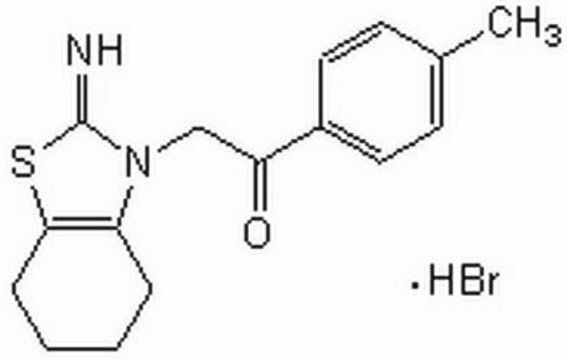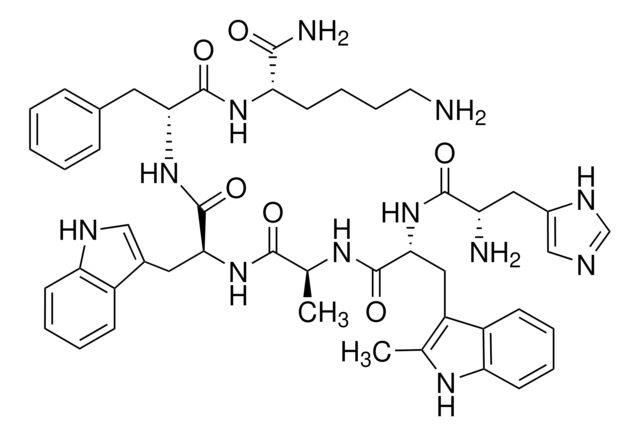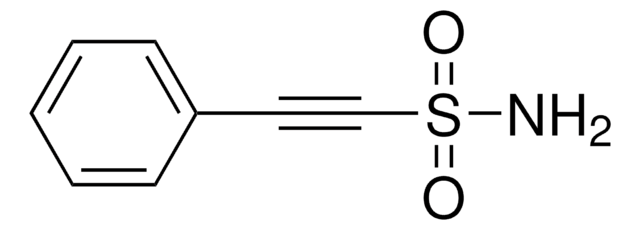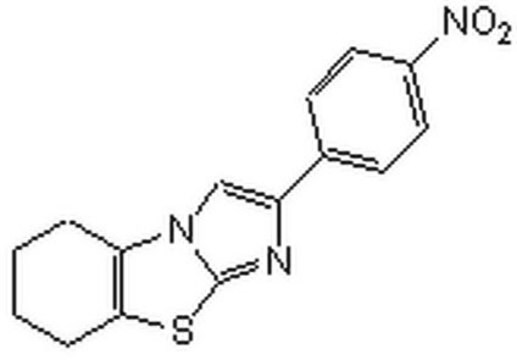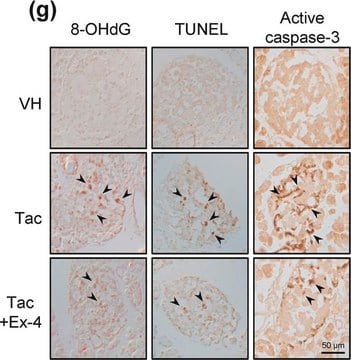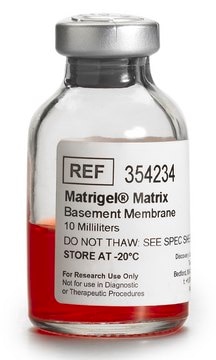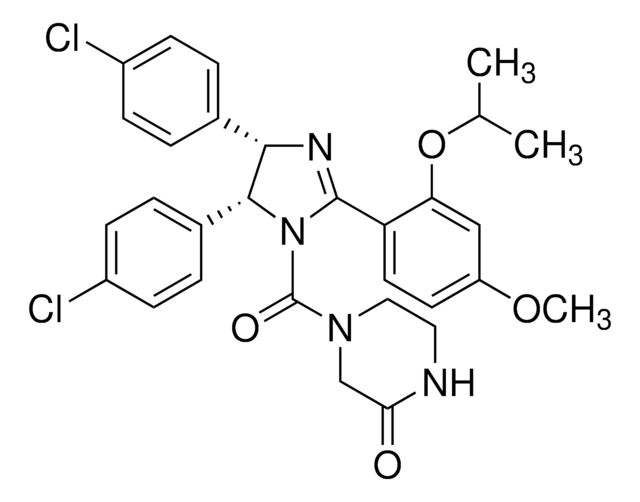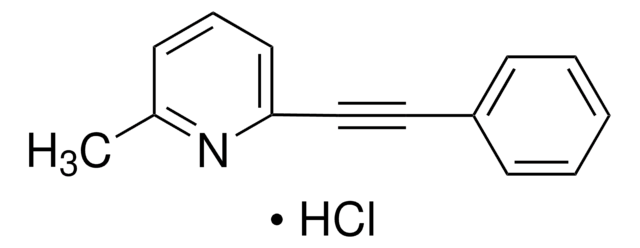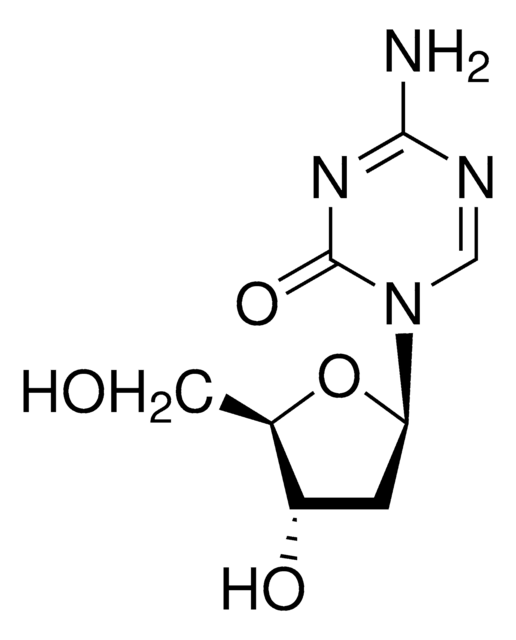P4359
Pifithrin-α
≥95% (HPLC), powder
Synonym(s):
2-(2-Imino-4,5,6,7-tetrahydrobenzothiazol-3-yl)-1-p-tolylethanone hydrobromide, PFT-α
About This Item
Recommended Products
Assay
≥95% (HPLC)
form
powder
storage condition
protect from light
color
off-white
mp
192.1-192.5 °C (lit.)
solubility
DMSO: 20 mg/mL
shipped in
wet ice
storage temp.
−20°C
SMILES string
Br[H].Cc1ccc(cc1)C(=O)CN2C(=N)SC3=C2CCCC3
InChI
1S/C16H18N2OS.BrH/c1-11-6-8-12(9-7-11)14(19)10-18-13-4-2-3-5-15(13)20-16(18)17;/h6-9,17H,2-5,10H2,1H3;1H
InChI key
HAGVCKULCLQGRF-UHFFFAOYSA-N
Application
- to study the effect of specific p53 inhibitor on p53-upregulated modulator of apoptosis (PUMA) expression after transient global cerebral ischemia (tGCI)
- as p53 inhibitor to treat PA1 cells
- as a tumor protein p53 (TRP53) inhibitor, to treat mouse lung epithelial-12 (MLE-12) cells
Biochem/physiol Actions
Features and Benefits
Storage Class Code
11 - Combustible Solids
WGK
WGK 3
Flash Point(F)
Not applicable
Flash Point(C)
Not applicable
Personal Protective Equipment
Choose from one of the most recent versions:
Already Own This Product?
Find documentation for the products that you have recently purchased in the Document Library.
Customers Also Viewed
Articles
We present an article about how proliferating cells require the biosynthesis of structural components for biomass production and for genomic replication.
Related Content
Apoptosis, or programmed cell death (PCD), is a selective process for the removal of unnecessary, infected or transformed cells in various biological systems. As it plays a role in the homeostasis of multicellular organisms, apoptosis is tightly regulated through two principal pathways by a number of regulatory and effector molecules.
n proliferating cells, the cell cycle consists of four phases. Gap 1 (G1) is the interval between mitosis and DNA replication that is characterized by cell growth. Replication of DNA occurs during the synthesis (S) phase, which is followed by a second gap phase (G2) during which growth and preparation for cell division occurs. Together, these three stages comprise the interphase phase of the cell cycle. Interphase is followed by the mitotic (M) phase.
Our team of scientists has experience in all areas of research including Life Science, Material Science, Chemical Synthesis, Chromatography, Analytical and many others.
Contact Technical Service
